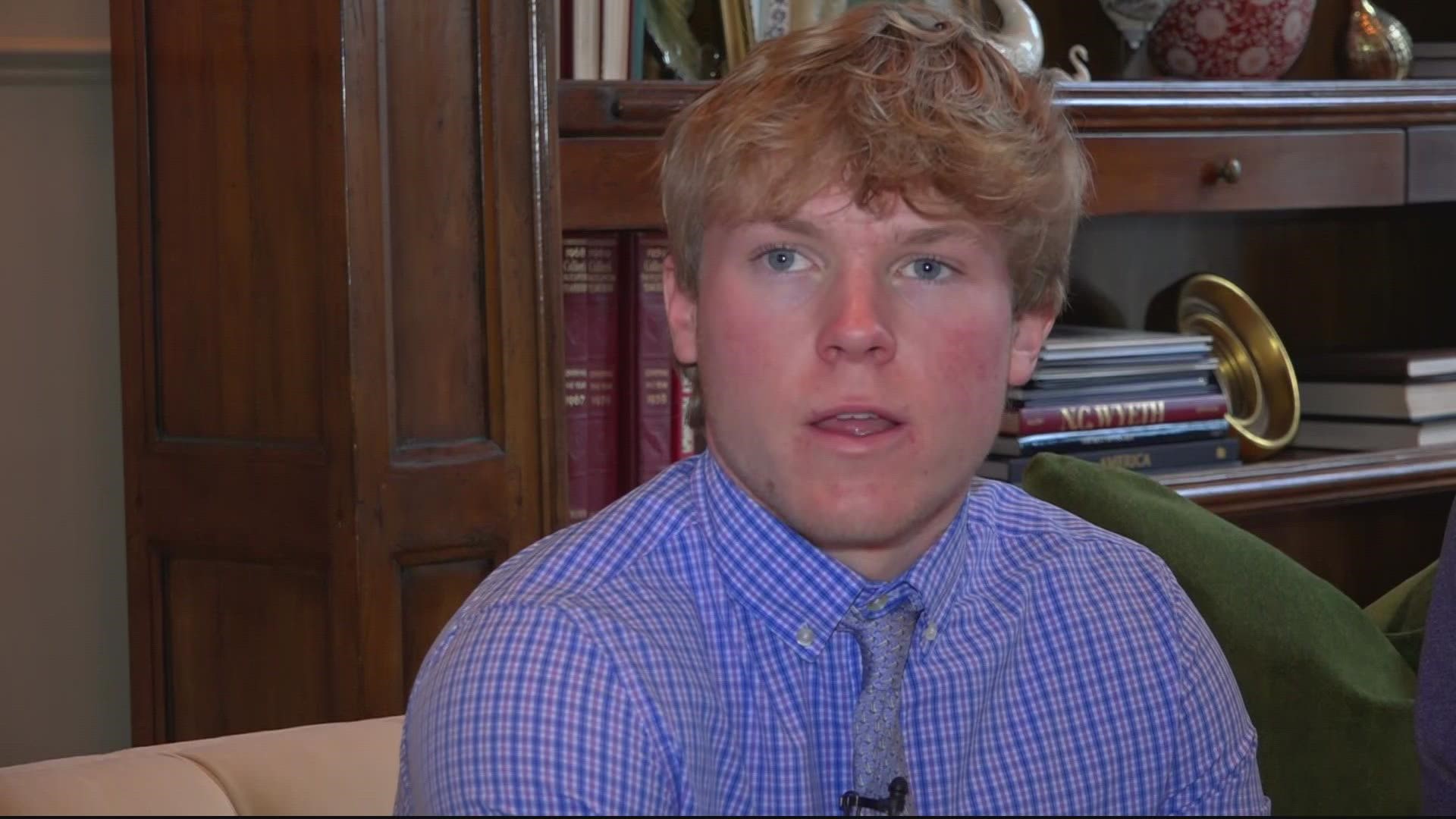TOWSON, Md. — A high school lacrosse player in Maryland who survived a cardiac incident on the field nearly two years ago is one of the many people saying prayers for Buffalo Bills player Damar Hamlin after a devastating injury Monday evening.
Lacrosse defenseman Peter Laake’s heart stopped when he took a shot to the chest during a game in 2021 while playing for Loyola Blakefield High School in Towson. His mother, Carron Laake, said the incident her son survived looked eerily similar to what happened to Hamlin after he made a tackle during a game a game in Cincinnati.
Peter Laake's life was saved because Loyola Blakefield had a defibrillator device on hand to shock his heart back in to rhythm as well as people who knew how to react. The family, along with the American Heart Association, are now fierce advocates of requiring defibrillator devices and CPR training requirements for all contact sport athletic programs.
“I got hit right in the lower chest area," Peter Laake said. "I turned around to look where the ball went and then I got like super dizzy as I was looking at the padded wall. And then from there, I just don't remember anything else."
The outcome at Loyola Blakefield became a case study for USA Lacrosse and the American Heart Association, which produced a video on how Peter Laake's life was saved from a phenomena called commotio cordis.
"It's literally a millisecond of a hit at precisely the right time, and the right location that turns our heart into a spasm,” said the athlete's father, also named Peter Laake.
Loyola Blakefield athletic trainer Jeremy Parr is credited with recognizing the phenomena immediately and reacting with the help of a heart doctor in the crowd who started CPR.
“This shouldn’t be in a cabinet at the school, but adjacent to athletic fields so it's within minutes," the senior Laake said pointing to a portable AED his family purchased and now carries to all games and practices they attend.
The junior Peter Laake returned to the lacrosse field and is now a recruit to play defense for the University of Maryland. His survival story, and what happened to Hamlin, are a wake up call to make AEDs and CPR training in athletics the routine and not the exception, according to the Laake family.

